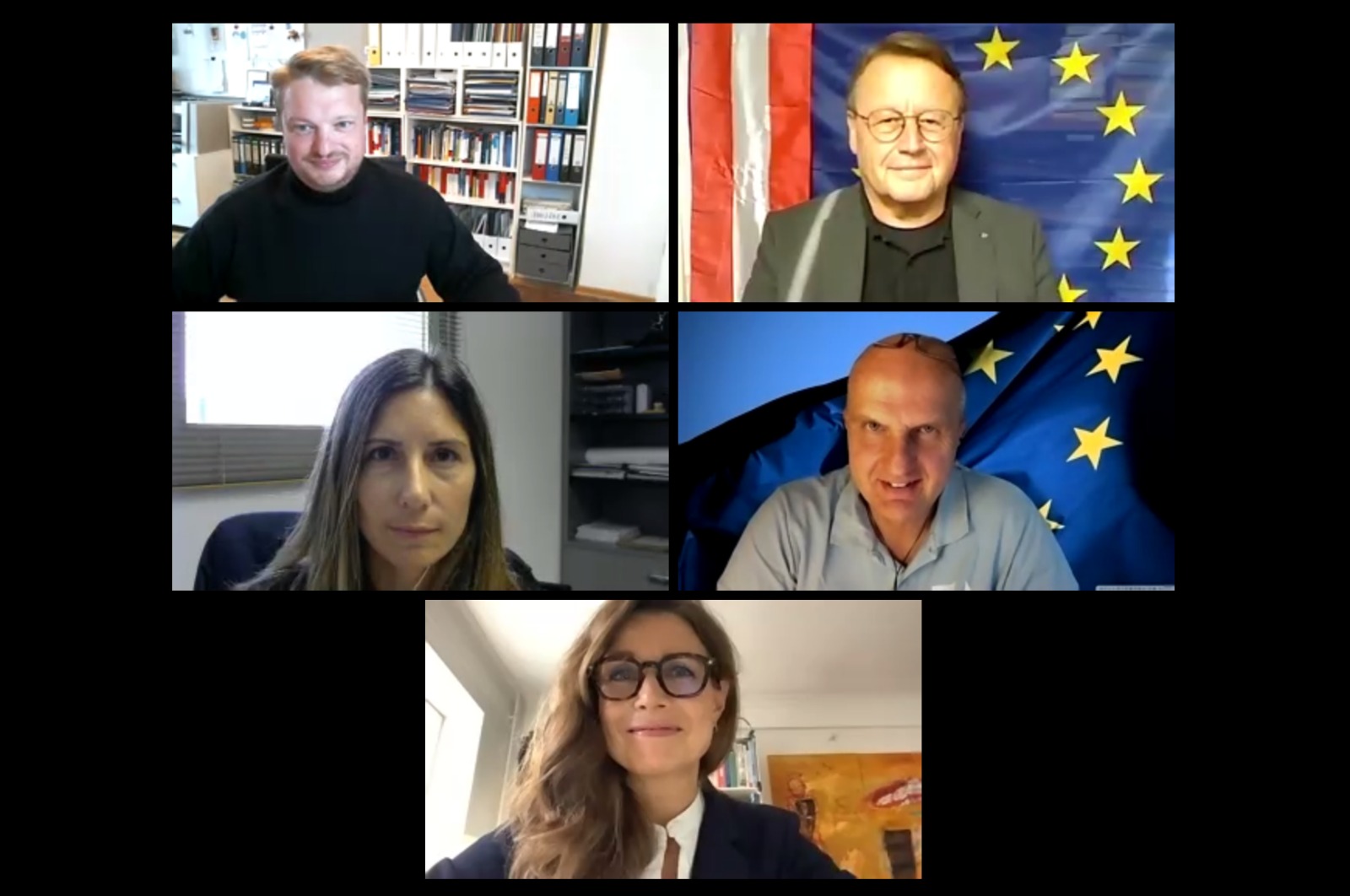Polluters of Growing Concern: Pharmaceuticals in Ground & Drinking Water

On Friday, October 2nd, 2020, the SME Connect Working Group SDG6 organised a webinar on “Polluters of Growing Concerns: Pharmaceutical in Ground and Drinking Water” to highlight the impact of pharmaceuticals on the water quality as well as water treatment alternatives.
In his keynote speech, Dr. Paul Rübig ret MEP, President SME Connect; put special emphasize on the circular economy in water management. “The circular approach especially sewage treatment should be a key priority in the European Union”, as clean water and sanitation, covered in the United Nation´s Sustainable Development Goal 6 (SDG6) will play a key role in the future. He, furthermore, discussed the advantages of sustainable sewage treatment plans to mange the water treatment in a better way. As board member of the EIT, the European Institute for Technology, he highlighted that one of the next kicks will be around water and he stated, “we need more entrepreneur spirit in this area”. “Sanitation is a human right, and therefore we need to fight for it.”
Pernille Weiss MEP, Committee on the Environment, Public Health & Food Safety; Committee on Industry, Research & Energy; Chair of MEP Water Group; Shadow Rapporteur for Parliament’s Circular Economy report on Water Re-use; Board Member of SME Europe of the EPP; “Pharmaceuticals have an essential role that we need to address together.” However, water is a very crucial part in that equation of circular economy with a huge impact on every aspect of the future world. She stressed that the current Urban Wastewater Treatment Directive is not fit for purpose and urgently needs to be revised. The Water Framework Directive, instead, is a key to reach the common objectives set up by the biodiversity and zero pollution strategies. “We need to push the Member States to proper implement the Water Framework Directive and focus on the Urban Wastewater Directive for revision.” Ms Weiss also underlined the important role of SMEs, as companies with new knowledge, innovation and technologies have already developed environmental and climate friendly solutions for the future “we need to help them getting the approval as fast as possible, so that they can enter the market”. Thus, would also allow Europe to share these solutions with the rest of the world and catalyse the export potential of green technologies and water technologies.
Dr. Isabel Oller Aberola, Researcher CIEMAT; Co-Leader of the WG on Contaminants of Emerging Concerns Water Europe; accentuated the research of the Water Europe Working Group on contaminants of emerging concerns mainly focused on the reuse of wastewater and the improvement of drinking water sources. It is important to work towards a Water Smart Society which means “to avoid water scarcity and pollution of water resources and foster a circular economy to create a water system which is resilient against impact of climate change events”, to ensure an adequate drinking water quantity and quality for the world´s population. Therefore, it is necessary to not only focus on pharmaceuticals but also on antimicrobial resistance and bacteria in drinking water instigated in the Dutch Green Deal on Sustainable Health Care. “The technology is being investigated and exists as a lot of SMEs and researchers already working in the field of pharmaceutical removal.” She underlined the statement of Ms. Pernille Weiss to support these operators to foster a circular approach of wastewater treatment and reduce the concentration of micropollutants. However, a deep evaluation and risk assessment analysis needs to be done to ensure the optimal treatment option.
The final speech was held by Dr. Bernd Manfred Gawlik, Project Manager Joint Research Centre, European Commission; in which he put special emphasis on the water quality, the perceptions and realities of a hidden threat. “The economic growth of a country goes hand in hand with the increase of pollutions like air or water pollution. Thus, the country loses around one third of the potential economy, the GDP, due to costs of water pollution and their impact of the daily life.” It is the fear that we are running out of water, it is the threat we can see regarding contamination of water and maybe the emotional reaction that triggers us to think about water, water treatment and water reuse. Moreover, the cultural setting is important to keep in mind too. “When SMEs trying to put contaminants avoiding technologies on the internal market, you have to understand the mechanism behind it, so that the people accepting and up taking these new innovations.” He stressed that water reuse is not an option any longer, it is a must, also in European countries.